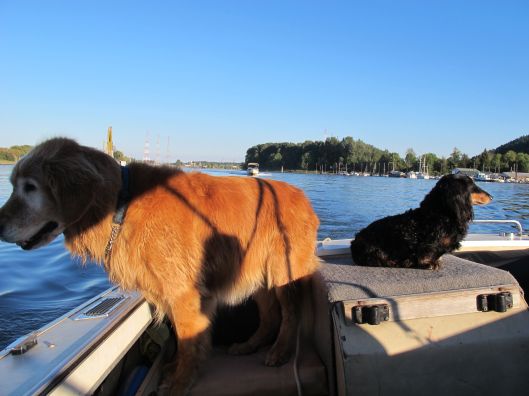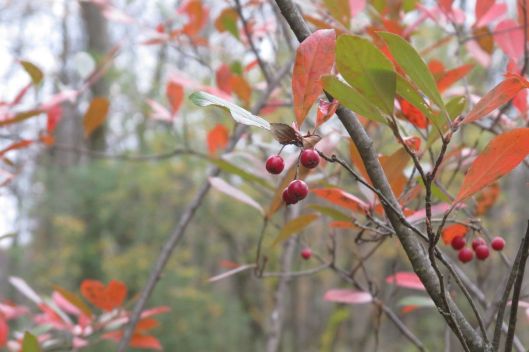
Morocco was never on my travel wish list. New Zealand, Iceland, and Brazil were all possibilities. But a visit to a predominately Muslim, developing country in northern Africa? I hadn’t even considered it. All of that changed, however, when my 26-year-old son Karsten joined the Peace Corps.
The fact that he was assigned to work there not only put Morocco squarely on my radar, it allowed me to transcend the typical tourist experience and literally break bread with ordinary Moroccans—people whose language, dress, and culture are very different from my own.
I’ve been home just a couple of weeks, and I’m still sifting through the many sights, sounds, and tastes of my trip, yet there’s one aspect that stands out—the connection I made with the women I met there.
My first introduction to a Moroccan woman was, oddly enough, during a video chat. My husband and I were conversing with our son shortly after he had arrived in Sefrou for training, when he invited his host mother, Fatima, to join us. At this point, Fatima had already nursed our son through one illness and had given him his Moroccan name, Karim.
In what remained of my high school French, I tried to thank her for taking such good care of “mon fils.” While my French vocabulary failed me, my facial expression and our immediate connection did not. “Avec plaisir,” Fatima replied with a smile that blew through the miles and burst through the screen like a warm breeze.
A year later, Karsten now lives in Tinghir, a city located south of the High Atlas Mountains, where he teaches life skills, like typing and AIDS awareness, to a co-ed group of local teens. During the week my husband and I visited him this past April, he and a Moroccan counterpart organized games and exercises to help his students develop confidence and communication skills.
“There is definitely a feeling of sisterhood among the women here,” he told me one morning as we walked through town.
I felt the truth of that observation almost immediately. On the first full day after we arrived in Tinghir, I found myself sitting upstairs from Karsten’s place in his landlord’s apartment, surrounded by a group of women wearing the traditional hijab (head scarf) and ankle-length skirts or dresses.
Laila, who speaks a little French, was decorating my hands with henna. Rachida, who had her young daughter in tow, spoke to me in English. The rest, friends and relatives of my son’s landlady, chattered away in the local Berber dialect.
Without my son present to translate, I did a lot of nodding and smiling. But Rachida clearly wanted more than just small talk.
“What do you think about the head scarf?” she asked me. (Most of the mature women I encountered in Morocco wore the traditional head scarf and a long dress or skirt — at least out in public —but not everyone does.) I told her that I thought it was fine if a woman chooses to wear it. She nodded her head and said that the “choice” was sometimes dictated by a strict father or husband. I had the feeling that Rachida was talking about herself. She clearly regretted not continuing her education. Once they are married, she told me, “Moroccan women are responsible for everything.” It was a lament I was to hear from other women as well.
I felt the full force of Rachida’s assertion a few days later when my husband, Karsten, three of his male friends, and I drove through a nearby town, passing cafes overflowing with male customers, while the few visible women were on the road, laden with babies, groceries, or bundles of alfalfa they carried home on their backs to feed the family donkey.
On that day, my femaleness, even more than my Western appearance made me self-conscious. I felt truly alien, oppressed by the difference between this place I was visiting and the place I call home.
Yet those differences seemed to dissipate whenever I was with a Moroccan woman; even if my daily outfit of jeans and a long-sleeved T shirt clashed with her long dress and hijab, even if we couldn’t communicate through talk, her friendliness, interest, and generosity fostered a feeling of camaraderie that coursed through our time together.
Where did this feeling of sisterhood come from? Part of it, I’m sure, had to do with the high esteem these women have for my son and the respect he shows them. In fact, one conversation I overheard between Peace Corps volunteers during an earlier leg of our trip was focused on ways they could teach their young male charges to treat girls with more respect.
Moroccans are naturally hospitable, and making strangers feel welcome is an ingrained part of their culture. Family is very important there as well, so having “Karim’s mama and baba” in their home was considered something of an honor. Beyond that—and I don’t know this for sure—I believe that our mutual femaleness in a male-dominated society triggered the sense of sisterhood that Karsten observed, and that I experienced.
For example, one morning, Aisha, Karsten’s landlady, showed me how to make the flat, round loaves of bread that are served with almost every meal. As she demonstrated her muscular kneading technique, rotated loaves of bread in and out of the oven, and cut up vegetables for a tagine—all accomplished with her 2-month old daughter strapped to her back—we also managed to commiserate, in our mutually limited French, about the challenges of nursing a newborn throughout the night.
Surprisingly, this feeling of oneness wasn’t just limited to encounters with adult women. The hugs and kisses I received from the 12-year-old daughter of Karsten’s Tinghir host family made me feel like a revered and much-loved aunt. And then there was our 10-mile trek to Todra Gorge with Karsten’s Leadership Club.
The walk, which wound through the local oasis and up a dusty road to the gorge, took about four hours. While some of the boys reached out to me, I spent most of the hike surrounded by teenage girls who were determined to teach me a few words of Berber. By the time we reached the gorge, I had a vocabulary list. By the end of the day, I had been given cookies and candy, offered the use of a coat and some lip gloss, and had acquired several new Facebook friends.
I was lucky enough to see these girls on two more occasions, when we accompanied Karsten to his classes at the cultural center. I will never forget Hayat, who was both patient and persistent when teaching me how to introduce myself and ask others their name in her native language. And I will cherish my conversations with Kaoutââr, who will soon be leaving for the university to study medicine and whose nose is constantly in her schoolbooks. Nor will I forget the feisty Soukaina or the other Hayat, a tall, lanky athlete in a headscarf who can out-throw, out-catch, and out-run all the boys when participating in my son’s American football club.
Several times during our visit, Karsten mentioned the Peace Corps mission to help “promote better understanding of other people on the part of Americans.” I’d say they are achieving that mission.
The next time I look at a photograph of a Moroccan woman, I won’t see a stranger, I’ll see a friend.

This post was also published today on Women’s Voices for Change.

































